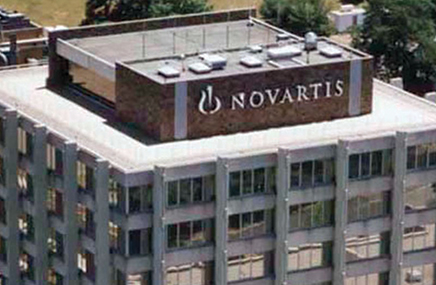Novartis’s breakthrough-therapy lung drug codenamed LDK378 had a 58% response rate among Phase-I clinical trial patients, according to a study published in the New England Journal of Medicine Thursday.
The experimental treatment for non-small cell lung cancer is one of the company’s three drugs to score the breakthrough label last year, a tag which accelerates the FDA review process.
The study found that the treatment, which targets the anaplastic lymphoma kinase gene and is known by the name ceritinib, worked both in patients who had and had not been treated with Xalkori, Pfizer’s ALK-targeting medication. The ability to have an impact in both populations is of note because patients typically develop resistance to Xalkori.
Bernstein analyst Tim Anderson noted in a January report that Novartis’s experimental treatment can cross the blood-brain barrier, meaning it has “activity in brain metastases,” unlike Pfizer’s Xalkori.
Although Xalkori gets name-checked in the NEJM study, this turf war is not limited to Novartis and Pfizer. Ariad and Chugai also have pipeline treatments that target the anaplastic lymphoma kinase gene, and anticipate regulatory filings in the near future—as in 2014 to 2016.
The ability to file the treatment this year would keep the expected 2014 pipeline full: the company expects 10 filings this year, including certinib.
Of the three breakthrough designations Novartis earned last year, ceritinib’s readout is a positive. An FDA panel published its negative opinion of breakthrough heart drug serelaxin before Thursday’s review, and the company is not expecting to file its muscle degenerating medication bimagrumab until 2016.








